Toyota: Plug-in Prius by 2010. Maybe.
The "will they/won't they" question about a Prius-based plug-in electric vehicle (PHEV) is gradually being replaced with "how, when, what and where." Why? Because the Japanese automaker has announced it's sending a brace of Prius PHEVs to the University of California (UC) for study. They're current gen Prii fitted with extra nickel metal hydride batteries. Electric-only mode only kicks-in at slow speeds, intermittently, for seven miles, on a full charge. One of the PHEVs is headed for the boffins at the UC's Irvine's Advanced Power and Energy Program. They'll try to figure out how to rate the mpg on the wee beastie and whether or not there are any environmental benefits to partial plug-in power. The other PHEV goes to the social (not to say socialist) scientists at the University of California Berkeley. They're looking to determine whether not anyone wants the darn fool thing and what a PHEV has to do to hit the consumer sweet spot (e.g. range, charging time, battery size and battery costs). Toyota Motor Sales' Marketing and PR Communications Manager says buyers hot for a PHEV will have to wait 'til 2010, at the earliest.
[Interview with Toyota PR on the whole PHEV thing below.]
More by Robert Farago



















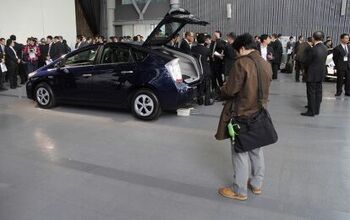
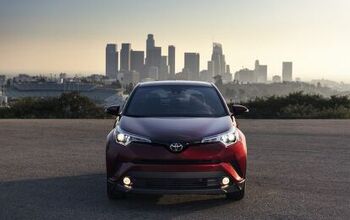
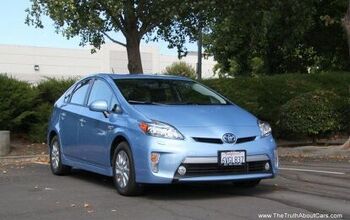
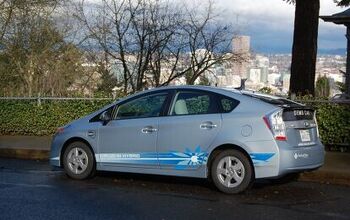







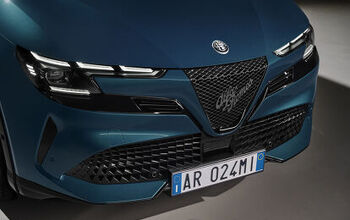



Comments
Join the conversation
Every legitimate research conducted has concluded that even powered for a coal plant an EV emits much less CO2 than an internal combustion engine. The batteries in the early Toyota Rav4 EV's are still in use after 150,000 miles. The Electric car converts much more of the used energy to HP at the real wheels than and ICE which is one of the reasons the end pollution is less. You don't need to convert gas stations to plug in a car, all you need to do is add an outlet to a parking meter and pay like you do to park when going for coffee. The advantages of electric cars are too many to list here and the oil companies did invest. They bought the company that produced large NiMh batteries for the GM EV1 and then did not allow anyone to produce them. I can't wait until I can get one.
One addition to the above comment regarding the Fuel Cell vehicle from Toyota. While we still don't have a distribution setup for Hydrogen, we do have ubiquitous distributon of electricity -- which means that getting motive energy to vehicles is a cinch with plug-in. While we're waiting for hydrogen to evolve as a safe alternative, this could be a good interim solution after oil heads north of USD 100/barrel. Electricity from plants (including coal) can be a lot cleaner than the cumulative emissions from ICE -- even with catalysts, etc. And as cars aren't in use at night, and the electric grid still has to carry a surge then, charging cars at night has been held out as the way to go.
Auto manufacturers are so tied to petroleum companies and visa-versa that it makes it politically difficult, if not impossible, for the auto manufacturers to develop PHEVs. Combine this with the fact that auto manufacturers have billions invested in current ICE production lines there is no way PHEV technology will be available any time soon. Even the Toyota Prius which is ideally positioned to go PHEV quickly will probably be stalled by the oil lobby. PHEV technology is one of the major steps towards an intelligent energy policy that must include nuclear, wind, solar, coal and hydro-electric power, as well as other energy alternates - but we don't even have an energy policy! PHEV technology is swimming against the tide and the tide is for bigger gas guzzlers promoted by the auto manufacturers and the petroleum companies. Just look at the car ads on TV. $5:00 a gallon gas is just around the corner. The US must really move away from dependence on foreign oil. PHEV is the obvious way to go for the next 10 years while new technologies emerge e.g. hydrogen fuel cells.
I agree with Stien X. Hydrogen fuel cell cars are way off in the future, 10 years at least. Distribution infrastructure is the biggest challenge right now for Hydrogen even though it will probably start off with a Hydrogen-from-H20 generator at home....powered by, guess what, electicity! So we are back to PHEVs for the immediate future. It seems clear that even Toyota will stall PHEV technology. No-one will buy a PHEV with an EV range of less than 10 miles - that's pathetic! The only way to go PHEV any time soon is to buy a Hybrid, like the Prius, and have it converted - but it's too expensive. Maybe the CA and CO converting companies will reduce their conversion-kit prices but until then we are SOL. Any bright ideas out there?